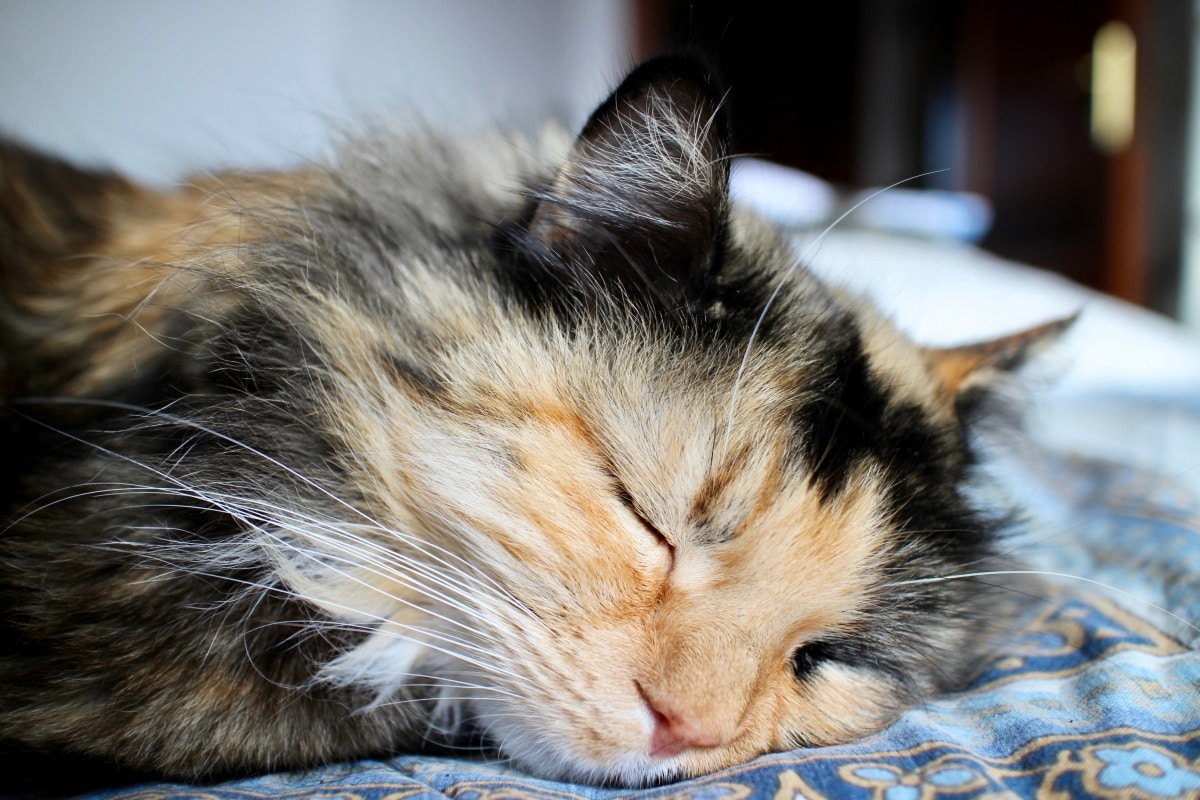
It is a fact - and also a very sad one - that cats, although they are one of the most beloved companion animals, are also one of the most abused. And it is that, apart from the physical violence that some humans exert on them, there is also the problem of the non-responsible possession of these animals, which only worsens the feline overpopulation that lives in the streets.
Therefore, it is very important to take steps to avoid bringing more homeless kittens into the world. Taking this into account, I'm going to tell you how much it costs to sterilize a cat and what its advantages are.
What is the sterilization of cats?

It is a surgical procedure in which the tubes that connect the ovaries with the uterus are sealed. This is known as tubal ligation, and it is the most advisable option when we cannot spend a »large» amount of money or we are concerned that castration (that is, the removal of the ovules from the uterus) will be complicated, which does not usually happen.
What are the advantages and disadvantages?
Advantages
- Short recovery time: the cat will return to her normal life two days after the operation, maybe even earlier.
- Simpler and shorter duration operation: Every intervention carries risks, but the simpler and shorter it is, the fewer complications can arise.
- The possibility of having offspring is eliminated: which in the end is the objective of this type of operation.
- Lowest price: it is much more affordable than the castration.
Drawbacks
- Keep having the zeal: the cat's body will continue to produce eggs and sex hormones, so it will continue to have heat. Of course, in case of copulation the sperm will not be able to reach the egg.
- The risk of having psychological pregnancies is maintained: and therefore also mastitis.
How much does it cost to sterilize a cat?

It depends a lot on the country and the vet. In Spain the sterilization of cats usually costs between 30 and 60 euros. Sometimes the municipalities carry out spay and neuter campaigns, during which veterinary clinics can make discounts.
If you are curious, the castration price is between 75 and 150 euros.
Which is better: spay or neuter?
Without any doubt, castration is the best from my point of view and experience, since by removing the ovules and the uterus it is avoided that it has more heat, with which the cat usually becomes much more calm and at home. It is true that the recovery time is somewhat longer, but cats usually recover practically completely a week after the operation, and cats after 3 days.
And still, the normal thing is that they return to their daily routines much earlier, at 48 hours, or maybe even earlier.
Can it cost me more?
The prices that we have discussed here are approximate, since it depends on where you live, prices may vary upward, but not usually downward. Although it is true that if you benefit from a castration service carried out by an association or by your own council, then it will be cheaper for you. Although, normally the prices tend to be around when there is no discount for the sterilization campaign, between 100 and 250 euros in total.
Reasons for castrating cats
Here are some reasons why it is important to treat your cat, and if you do, you will not regret it later!
- Population control. It is important to neuter a cat before she can have kittens. This happens very quickly depending on the breed, the time of year it was born, and individual development. The first season usually occurs around six months, but it can be earlier. Female cats can have up to three litters in a year.
- Discomfort control. Female cats will 'call' (come into season and be receptive to the male cat) regularly, approximately every three weeks during sexually active times of the year if they do not become pregnant. Keeping female cats in heat in one area will attract males in heat with the consequent problems of fights and annoying meows.
- Wellness issues. Unwanted kittens may not be cared for and they are likely to suffer from various infectious diseases, such as cat flu or worse. It is unlikely that there will be enough new houses available to them.
- Health problems. Female cats that are not neutered are more likely to develop pyometra (infection of the uterus) later in life and breast tumors. Non-neutered female cats with infectious diseases can pass them on to their kittens. Pregnancy and childbirth are not without risk either.
- Wildlife problems. Cats with kittens will hunt more actively, and if not fed, they will have to catch more wildlife to feed their kittens.
Sterilize cats

In the past, it has been suggested that all female cats should be allowed to have a litter of kittens. However, this is totally unnecessary and does not benefit the cat at all. Therefore, it is preferable to sterilize the female before she reaches sexual maturity.
Once sexual maturity is reached, the cat in heat will "call out" to the males.. Cycles of sexual activity typically occur every two to three weeks, and when a cat is 'calling', as the name implies, this can be a very noisy affair!
Certain medications can be used to suppress the sexual cycle, but some of them carry a considerable risk of significant side effects in female cats and are not recommended for long-term use. If you are not going to breed your cat, spaying her will eliminate the possibility of unplanned pregnancies., but you have to know that sexual behavior, as well as the risk of diseases associated with the genital tract will remain unless you take her to castrate.
The castration operation involves the administration of a general anesthetic and the surgical removal of the ovaries and uterus through an incision in the cat's side or belly. The fur at the incision site will need to be shaved before surgery, and your vet will ask you not to eat anything the night before anesthesia. Generally, your cat will be able to return home the same day, and the skin sutures are usually removed after 7-10 days.
So if you can afford it, have your cat neutered. You will both win.